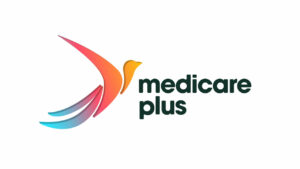
Philippine HMOs expected to bounce back after rampant insurance fraud
MEDICARE PLUS, Inc. expects the health maintenance organization (HMO) industry to continue its recovery in the coming quarters as companies continue to consolidate.
“In the last two years, there was a huge decline,” Medicare Plus Chief Executive Officer Maria Jesusa “Jayjay” Viray told reporters on Thursday. “That’s a wake-up call to all our partners in the industry. Of course, it’s also going to help if we cooperate with our member-hospitals and clinics and understand their situation.”
“We cannot just be working independently,” she said, adding that she expects the sector to bounce back and grow.
The HMO industry posted a net income of P636.6 million in the second quarter, data from the Insurance Commission showed. This was a turnaround from the P1.19-billion net loss a year earlier, according to the unaudited financial statements of 25 HMOs.
Before this, the HMO industry had quarterly net losses from September 2022 to December 2023.
“As a member of the industry, we have to rethink how we do things, how we serve our clients,” Ms. Viray said. “For some time, I think we’ve been locked in and not fulfilling contracts and coverages… That’s something that we have to revisit.”
She attributed the industry’s decline to rampant fraud.
“So as a provider, we have to do our part in keeping this industry aligned,” she said. “If we don’t rethink how we do things, then it will just continue to decline and there will be more losses.”
Ms. Viray noted that from 30 companies, they have gone down to 25 in just two years.
The Insurance Commission has been shutting down HMOs for failing to meet minimum capital requirements.
In July, the regulator issued an advisory seeking industry comments on a possible increase in HMOs’ minimum paid-up capital, which will be enforced over 10 years.
Under the proposal, existing HMOs must have at least P50 million in paid-up capital by end-2024 from P10 million now, while new HMOs must put up at least P100 million in capital.
By end-2025, all HMOs should have at least P100 million in paid-up capital. This will be increased to P200 million by end-2028, to P350 million by end-2031 and to P500 million by end-2034.
Ms. Viray said she hopes more HMOs would come in since the sector remains largely untapped.
“Only seven million are enrolled in an HMO plan,” she said. “What happened to the rest of the country? The plans are not expensive. Everybody can afford to get a plan. But we have to do our part as providers.”
She said Medicare Plus is expanding and buying clinics since it has managed to meet the minimum capital requirement for HMOs. “We are in expansion mode. We’ve just bought several clinics and we are going to get more,” she added.
As of end-June, Medicare Plus’ capital stock was P50 million.
Ms. Viray said they are waiting for the Securities and Exchange Commission’s (SEC) approval of another P70 million in capital, which will bring the company’s total capital stock to P120 million.
Medicare Plus raised its capital due to its strong revenue, she added.
The company on Thursday signed a memorandum of understanding with the Public Safety Mutual Benefit Fund, Inc. to provide its members with healthcare services.
The Philippine National Police’s (PNP) mutual benefit fund will begin with a pilot program, providing healthcare services first to 16,000 members who have been in the service for 20 to 24 years until the first quarter of 2025, when it will have expanded to more members.
The fund has 200,000 members.
Medicare Plus’ services will add to the PNP’s own hospitalization program, fund trustee Emmanuel B. Peralta said.
The fund will pay P60 million each year in the next five years, for a total of P300 million. This translates to about P40,000 worth of health service coverage per member.
Medicare Plus posted a net income of P545,135 in the second quarter. — Aaron Michael C. Sy



